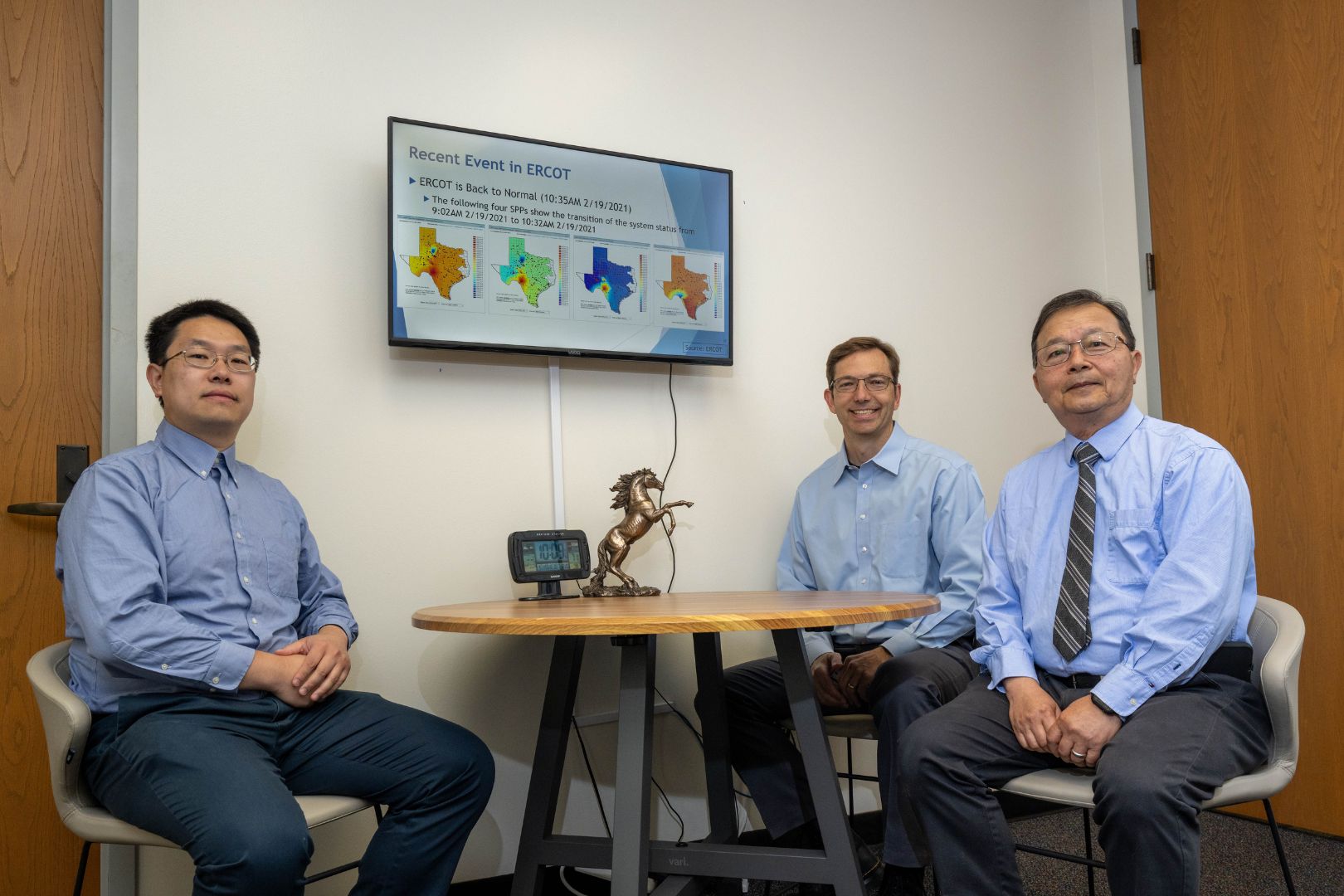UTA engineer earns NSF CAREER award for power research

Yichen Zhang, an assistant professor of electrical engineering at The University of Texas at Arlington, has received a Faculty Early Career Development Program award from the National Science Foundation to advance his research and education initiatives.
The award, known as CAREER, is the foundation’s highest honor for junior faculty. Recipients are recognized as outstanding researchers expected to become leaders in educational excellence and in integrating education with research at their home institutions.
The $500,067 grant will support Dr. Zhang’s efforts to enhance power system stability and safety in the presence of large-scale inverter-based resources (IBRs) by leveraging emerging grid-forming control technologies, also known as GFMs.
Most renewable energy sources—such as solar, wind and battery storage—are IBRs. These resources cannot directly connect to the power grid without controls to synchronize through converter systems. Most IBRs operate in grid-following mode, where they passively inject power into the grid. However, this approach poses challenges: as more grid-following IBRs come online, the system experiences less voltage and frequency regulation, increasing the likelihood of large fluctuations that can trip IBRs offline and potentially cause outages.
Grid-forming control mimics the behavior of traditional synchronous generators. Because power systems operators are familiar with how synchronous generator-dominant networks operate, traditional theories can be applied to guide new technologies.
“IBRs are controlled digitally, so their behavior can be programmed,” Zhang said. “GFMs mimic synchronous generators so the grid becomes more reliable and stable. We are trying to provide guidelines to set control parameters based on grid operating conditions so GFMs will respond to disturbances more efficiently.”
The Electric Reliability Council of Texas and Oncor are working with Zhang in an advisory role. They will provide feedback on the models developed by Zhang and his team to help ensure their accuracy and alignment with real-world conditions.
“This grant is well-earned. Dr. Zhang’s research will greatly assist energy providers in ensuring that the power grid runs efficiently with the addition of renewable sources, which can ease the strain on more traditional sources of energy,” said Wei-Jen Lee, chair of the Electrical Engineering Department.
Zhang joined UTA in 2022. His research focuses on power systems, power electronics and renewable integration. Prior to UTA, he was an energy systems scientist at Argonne National Laboratory.
— Written by Jeremy Agor, College of Engineering